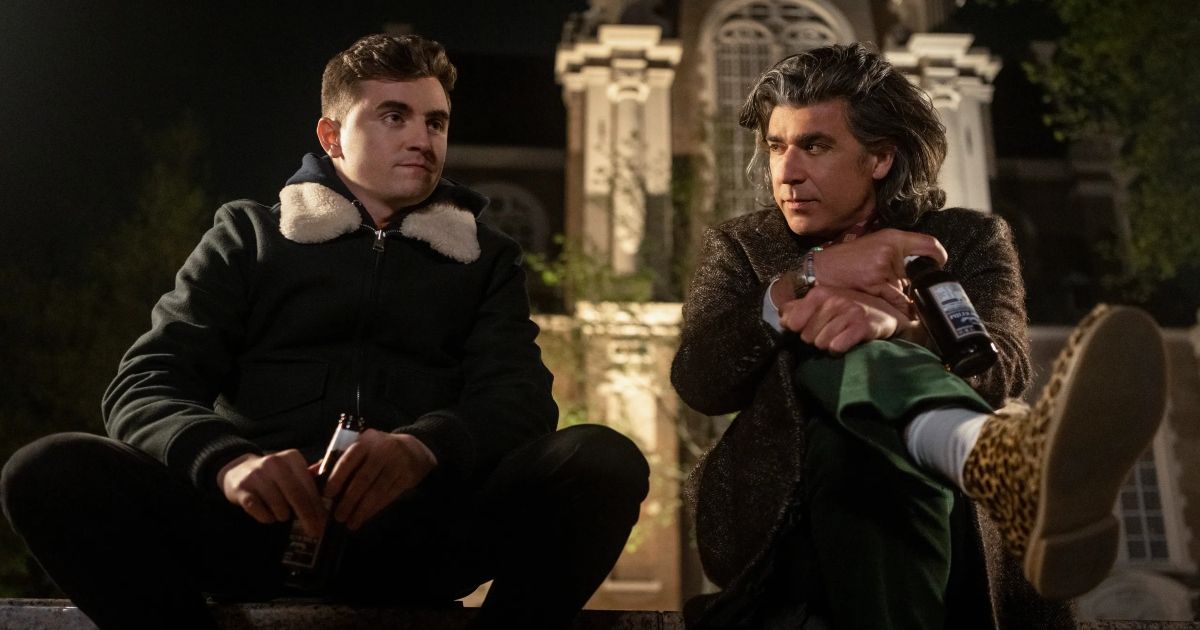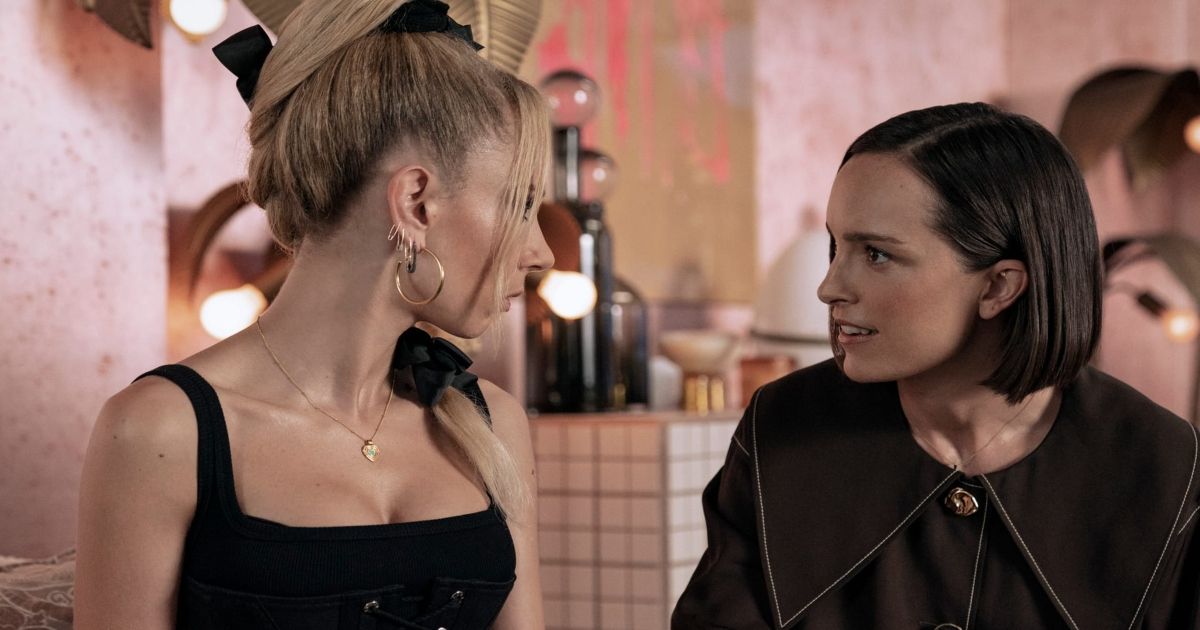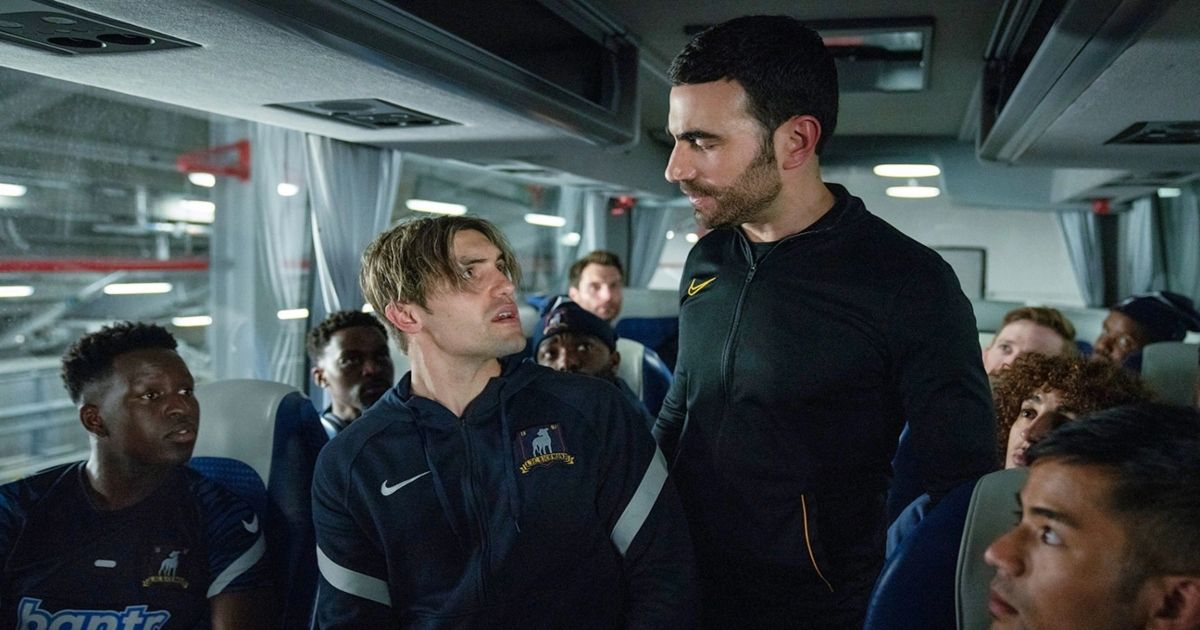The final season of Ted Lasso has been bittersweet for fans so far. With each new episode, audiences are more and more aware of how close the heartwarming and hilarious series is to wrapping up entirely. Writers and stars Brett Goldstein (gruff yet lovable footballer turned coach Roy Kent) and Brendan Hunt (the quiet, cultured, and desperately in co-dependent love Coach Beard) have expressed a genuine appreciation for the fans’ insistence on a fourth season, but remain firm that the series was always intended to end after Season 3.
It’s difficult for fans of the show to come to terms with the fact that it’s ending for a host of reasons, not least of which the relationships between the beloved characters. The writer's room of Ted Lasso brings a sympathy to each and every character, allowing them all to be protagonist and antagonist alike from episode to episode, growing and changing along the story's arc. The show also explores a range of sexualities without always explicitly adding labels to the characters.
Today's zeitgeist defines queerness in a variety of ways, but an overarching definition is simply anyone who is not cisgendered and heterosexual. More liberal definitions remove the romantic and sexual elements entirely, defining it as anything outside the established norm. From representation of all sorts of love to unlearning toxicity, here’s how Ted Lasso explores and brings meaning to its queer themes.
Representing a Spectrum of Sexualities
Many of the characters on Ted Lasso don't define their sexuality until it becomes relevant, and even then rarely put labels on it. For instance, Keeley Jones (played by the adorable Juno Temple) starts the series dating superstar Jamie (the chiseled Phil Dunster), hinting at past relationships with women and charming everyone she meets regardless of gender. By Season 3, she's dating a gorgeous woman named Jack, which of course comes with its own challenges, but did not require any sort of coming out to anyone on her part.
On the flip side, Richmond's left wing Colin Hughes (breakout star Billy Harris) struggles to come to terms with his own sexuality, hiding his relationships with men from his team. He cuts out of team hangouts early to sneak away to gay clubs, introduces his lovers to his teammates as "wingmen" with a clearly planned backstory, and panics at the thought of anyone discovering his secret. Anyone who watches the show and understands the characters can see that the team would ultimately accept him for who he is (and probably knows already), but queer audiences can relate wholeheartedly to Colin's crippling fear of loved one's reactions, no matter how close the relationship. Although his character development is relatively new, audiences have speculated about Colin's sexuality since Season 1, when he spelled Grindr correctly in a conversation about a new app, Bantr.
Nate Shelley (played by the talented Nick Mohammed) has struggled intensely with his confidence since starting out as Richmond's kit man (that's a water boy, for the American readers) and working his way up to coach West Ham United. Despite his new status, he still struggles to ask out Jade, a beautiful hostess at his favorite restaurant. He is known to berate himself, even spitting on the mirror when giving himself a pep talk more than once, and it's starting to look like the situation with Jade is no different when he bursts into the bathroom to take a breather after becoming overwhelmed.
He looks at himself and audiences brace themselves for the spit to hit the mirror, but something clicks inside him this time. He rushes past Jade, telling her he needs to do something before he can ask her, then goes home to make one of his signature craft boxes, which opens up to a pop-up of the two of them and a request for a date. He comes back to the restaurant box in hand, but he trips while crossing the street and the box is run over by a passing car. Jade (and the audience) gasps in shock, but Nate is undeterred. He approaches her and asks her out, easy as that. Just as simply, she says, "Yes."
Exploring the Intimacy in All Sorts of Relationships
From setting boundaries on love bombing to allowing rivalries to blossom into friendships, Ted Lasso is a masterclass in exploring intimacy in all relationships. In the beginning of the series, star player Jamie Tartt and veteran legend Roy Kent were bitter, hateful rivals, unable to even be in the same room without an altercation of shoves and/or insults. Both men went through intense emotional growth throughout the series: Jamie addressing his damaged relationship with masculinity stemming from a toxic father; Roy, his constant aggression as a result of a painful childhood.
Now that Jamie has matured into a team player and Roy has relaxed enough to become a coach with occasionally silly quips (even to his own chagrin), the two are able to work together to make Jamie an incredible player, even working through their trauma together. At one point, Roy furiously confesses that he can't ride a bike, and Jamie spends the night teaching him, taking all of his falls, aggressive frustration, and bike-throwing in stride. By the end of the night, they're riding through Amsterdam together, sharing personal stories and intimate feelings with the man that used to be their sworn enemy.
In another instance, Keeley's relationship with Jack begins when she asks the stranger in the stall next to her for a tampon and compliments their bedazzled shoes. A few moments later, she's introduced to her new boss, and immediately recognizes the sparkly shoes she's wearing. After the initial embarrassment wears off, Keeley sets to work charming Jack the way she's charmed Rebecca, Ted, Roy, and every other character on the show. When working closely together to solve a dramatic problem late one evening, there's a tangible spark of romance (helped along by some booze their coworkers keep in their desk), and the two begin an adorable and super hot relationship.
As in every workplace romance, this new connection comes with its challenges, but with the advice of her friends, Keeley is able to communicate her concerns and feelings with Jack in a safe, healthy way that allows the relationship to blossom rather than suffocate under the weight of unspoken problems.
Acknowledging and Unlearning Toxic Masculinity in Sports
Season 3 of Ted Lasso has been slowly building up to Colin's confession, from Billy Harris' subtle turns away when his teammates crack homophobic jokes, to journalist Trent Crimm (the incredibly poignant James Lance) spotting him kissing his "friend" outside a restaurant. Many might be wondering why he feels the need to keep this secret buried so far from his friends, and Colin has a heartbreaking answer: "My whole life is two lives, really. You got my work life. Like, no one at the club knows. I’d like to think they wouldn’t care, but it’s just easier that way."
Although Ted Lasso showcases a heartwarming locker room, with joyful people celebrating their wins and mourning their losses in the spirit of togetherness, the writers would be remiss to completely ignore the toxicity and phobias in the locker room that inspired the phrase "locker room talk." For Colin to struggle with this provides his character with a new layer, a dimension that brings him from a side character or a trope into a real human being with complexities and complicated feelings.
One night in Amsterdam, Trent finds Colin at a gay club and shares his own story of coming out to his wife, providing a safe, platonic space for him to be himself and share his truths with someone who understands. Colin is able to see his potential future in him, where he has a family he loves and can be himself without fear. And it's not as if his desires are unreasonable, especially in the 21st Century: "I don’t want to be a spokesperson. I don’t want a bunch of apologies. All I want is for when we win a match, to be able to kiss my fella the same way the guys get to kiss their girls. And I know we can’t fix every ache inside of us. But I shouldn’t have to pretend it’s not there, either."
Harris has embodied the role of Colin so beautifully and genuinely that it's clear the effect he's had on people going through the same difficulties as Colin. In an interview with Variety, Harris said, "People basically saying that they wish their younger self could have watched this. I’ve had so many people telling me: 'I loved football, but I was also gay in school and I knew well the prejudices that go hand-in-hand with being gay and being a footballer. To have watched this would have really helped me.'"
Ted Lasso is a show about finding the beauty in everyone, especially oneself, and showing audiences that their real life struggles are valid, but that they don't have to face them alone. From men who struggle to find common ground with their fathers, to people trying to have healthy relationships while healing themselves, to building strong friendships on and off the pitch (that's a field, for the Americans), anyone can find themselves in one or more characters in Ted Lasso regardless of their sexuality or background.




